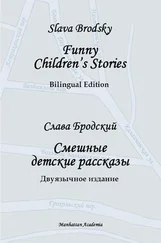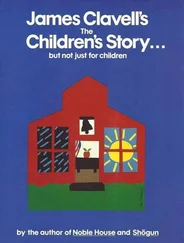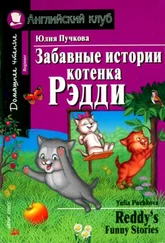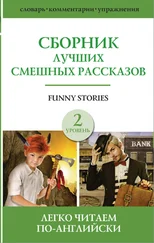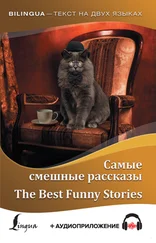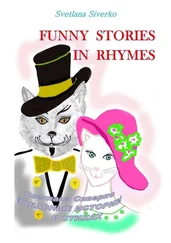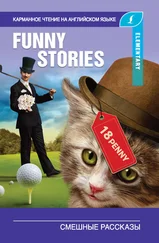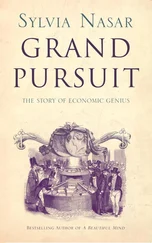Slava Brodsky - Funny Children's Stories
Здесь есть возможность читать онлайн «Slava Brodsky - Funny Children's Stories» весь текст электронной книги совершенно бесплатно (целиком полную версию без сокращений). В некоторых случаях можно слушать аудио, скачать через торрент в формате fb2 и присутствует краткое содержание. Год выпуска: 2012, ISBN: 2012, Издательство: Manhattan Academia, Жанр: Старинная литература, на английском языке. Описание произведения, (предисловие) а так же отзывы посетителей доступны на портале библиотеки ЛибКат.
- Название:Funny Children's Stories
- Автор:
- Издательство:Manhattan Academia
- Жанр:
- Год:2012
- ISBN:9781936581016
- Рейтинг книги:4 / 5. Голосов: 1
-
Избранное:Добавить в избранное
- Отзывы:
-
Ваша оценка:
- 80
- 1
- 2
- 3
- 4
- 5
Funny Children's Stories: краткое содержание, описание и аннотация
Предлагаем к чтению аннотацию, описание, краткое содержание или предисловие (зависит от того, что написал сам автор книги «Funny Children's Stories»). Если вы не нашли необходимую информацию о книге — напишите в комментариях, мы постараемся отыскать её.
Funny Children's Stories — читать онлайн бесплатно полную книгу (весь текст) целиком
Ниже представлен текст книги, разбитый по страницам. Система сохранения места последней прочитанной страницы, позволяет с удобством читать онлайн бесплатно книгу «Funny Children's Stories», без необходимости каждый раз заново искать на чём Вы остановились. Поставьте закладку, и сможете в любой момент перейти на страницу, на которой закончили чтение.
Интервал:
Закладка:
Slava Brodsky
Funny
Children's Stories
Notes
of a twelve-year-old boy
Translated from Russian
by Helen Leyzerovich
Manhattan Academia
Slava Brodsky
Funny Children's Stories
Translated from Russian by Helen Leyzerovich
with editing help by Maria Tyutyunik and Baha Rudin
Manhattan Academia, 2012 – 112 p.
www.manhattanacademia.com
mail@manhattanacademia.com
ISBN: 978-1-936581-01-6
Copyright © 2012 by Slava Brodsky
www.slavabrodsky.com
This edition is an English translation of a recently published Russian book, together with publisher’s comments for the American public. The book is a collection of short children's stories about the events that took place in Moscow (Russia) in the mid-fifties of the last century, a decade after the end of World War II. These stories may be of interest to both children and adults. Children will find many truly funny episodes in the book and will be able to look at the capital of Russia in the middle of the twentieth century through the eyes of a twelve-year-old boy. Adults will be able to look at the same events through their own eyes. They also will laugh or perhaps be a bit sad.
In memory of my parents
Содержание
Publisher’s Preface
The Hockey Stick
The Handkerchief
Pygmies
The Tea Spoon
A Silver Half-Ruble
An Ink Pencil
The Hole
Anton
The Irregular Verb
The Scooter
American Stewed Meat
Endless “Freeze!”
The Wardrobe
Proof
The Old Shoes
My Friend Gleb Paramonov
Kogan
To America – for Gold
Étude of Kreisler
Rhododendron
The Black Day
The Trick
Lisa
A Symphony Orchestra
The Old Woman and the Cart
Hot Countries
Publisher’s Preface
At the beginning of last summer, an old friend of mine from Moscow stayed at my house. He told me all sorts of stories, both happy and sad. Among other things, he informed me that his distant relative had passed on to him three thick school notebooks filled with the notes of an unknown boy and implored him to read them.
Right before leaving Moscow, my friend read these notes, became excited by their contents, and decided to bring them over to me. He also added that his relative told him that after the death of their owner, these notebooks were passed from one person to another several times with a last request from the author: to publish the notes either under a fictitious name or under the name of the publisher. My friend told me that the notes, in essence, were short funny stories and, in his opinion, must be published without any doubt. However, he had neither the time nor the means to do that, and so all his hopes rested with me.
As soon as I began to read the boy’s stories, I immediately started to wonder whether I should, indeed, accept all responsibility and expenses for their publication. And just in a few days, I was already working on editing them.
I must say that I tried to make as few corrections as possible in the stories since they were written simply, briefly, and clearly. I only made minor editing changes and deciphered illegibly written words.
The boy himself, apparently, did not consider his notes as stories. So none of them had titles. After a short period of hesitation, I took the liberty of adding titles on behalf of the author. And I hope that by doing so I did not ruin the story line but only bestowed some necessary order on the text.
Before I sent the manuscript to a printing company, I asked my friend to find out whether some light could be shed on any details of the boy’s life. A short time later, my friend replied that no further information about the author of the stories could be obtained since none of those who had kept his notebooks was still alive.
And so, it remains for me to add just a few words. From the text of the notes, it follows that the boy lived in Moscow. However, it is difficult to say for sure where exactly in Moscow the described events took place. Based on what I have read and fragmentary information about the distant relative of my friend, I can only assume, with a certain degree of confidence, that everything happened not far from Moscow’s square of three train stations. Most likely, where Bolshaya Pereyaslavskaya Street intersects with Bezbozhny Lane (now Protopopovsky Lane) and Kalanchevka Street, or where Bolshoi Balkansky Lane goes up from Kalanchevka.
It is safe to say that the stories were written in the mid-fifties of the past century, more than ten years after the end of World War II. At that time, the area of the three train stations and surrounding streets were considered a restless region of Moscow. Yet, apparently, the boy came from a rather prosperous family. In the stories, he indicated his own age – twelve, and I think there is no reason to doubt that.
Slava Brodsky
Millburn, New Jersey
March 17, 2007
Funny
Children's Stories
Notes
of a twelve-year-old boy
The Hockey Stick
Today we played hockey. In the winter we play hockey very often. Because in the winter it is the most interesting thing we can do. And our winters last for a long time. They last for nearly half a year, from November to March. But sometimes it can snow even in April and October.
Honestly, it is not quite hockey. We do not play on ice. We play on pressed snow. So we play without skates. We just run in shoes or, more often, in felt boots. And if we run in felt boots then we, of course, wear galoshes over them.
Sometimes they make a skating rink for us. But first of all, this happens very rarely, and second, we play in felt boots anyway. We play in felt boots because the ice is uneven. So it is difficult to skate on it. Besides, not everyone has skates.
Today there was no ice in the rink. But we trampled the snow so hard that the puck went over it just fine. It moved very well. It almost slid. And it slid over the snow because our puck is very good.
We make it out of an empty tin can. But not out of a tall can, of course. We make a puck out of a flat tin. And the best tin is one that is opened only a quarter or a third of the way, no more.
If we put something heavy inside and bend the lid back, it becomes a pretty decent puck. And there is no fuss with it. We hide it somewhere right in our yard. And we have never lost it. Probably because no one else has any need for it.
There is another difference between our game and real hockey. We play without hockey sticks. But not because we do not have them. Some of us do have hockey sticks. Using tin metal, we attach an oblong piece of plywood to a wooden stick, thus making a Canadian hockey stick. But not everyone has such a stick. And when someone plays with a hockey stick and someone else, without a hockey stick, it ends very badly for the stick. When the stick collides with a felt boot, it immediately breaks. For this reason, we are afraid to play with hockey sticks. However, if someone has a hockey stick, he still brings it out to the yard. But he brings it just for the warm up. And when we start to keep score, everybody knows that it is better to put the hockey stick aside.
Читать дальшеИнтервал:
Закладка:
Похожие книги на «Funny Children's Stories»
Представляем Вашему вниманию похожие книги на «Funny Children's Stories» списком для выбора. Мы отобрали схожую по названию и смыслу литературу в надежде предоставить читателям больше вариантов отыскать новые, интересные, ещё непрочитанные произведения.
Обсуждение, отзывы о книге «Funny Children's Stories» и просто собственные мнения читателей. Оставьте ваши комментарии, напишите, что Вы думаете о произведении, его смысле или главных героях. Укажите что конкретно понравилось, а что нет, и почему Вы так считаете.
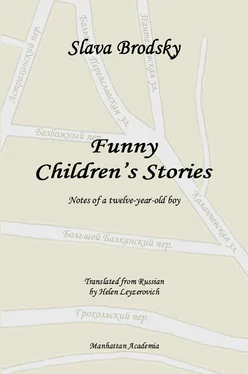
![Марк Твен - Смешные рассказы [The Funny Stories]](/books/29189/mark-tven-smeshnye-rasskazy-the-funny-stories-thumb.webp)
